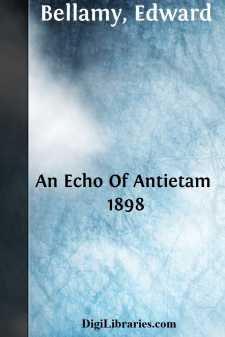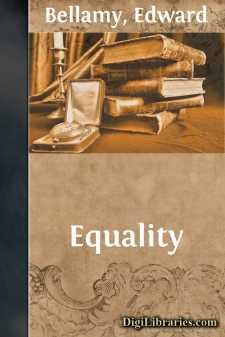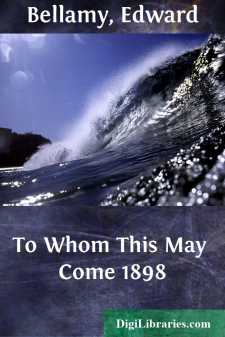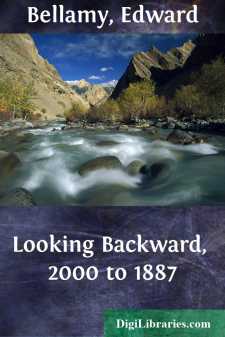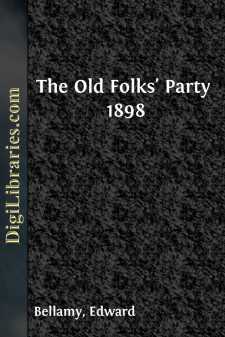Categories
- Antiques & Collectibles 13
- Architecture 36
- Art 48
- Bibles 22
- Biography & Autobiography 816
- Body, Mind & Spirit 145
- Business & Economics 28
- Children's Books 18
- Children's Fiction 14
- Computers 4
- Cooking 94
- Crafts & Hobbies 4
- Drama 346
- Education 58
- Family & Relationships 59
- Fiction 11834
- Foreign Language Study 3
- Games 19
- Gardening 17
- Health & Fitness 34
- History 1378
- House & Home 1
- Humor 147
- Juvenile Fiction 1873
- Juvenile Nonfiction 202
- Language Arts & Disciplines 89
- Law 16
- Literary Collections 686
- Literary Criticism 179
- Mathematics 13
- Medical 41
- Music 40
- Nature 179
- Non-Classifiable 1768
- Performing Arts 7
- Periodicals 1453
- Philosophy 66
- Photography 2
- Poetry 897
- Political Science 203
- Psychology 45
- Reference 154
- Religion 516
- Science 126
- Self-Help 86
- Social Science 82
- Sports & Recreation 34
- Study Aids 3
- Technology & Engineering 59
- Transportation 23
- Travel 463
- True Crime 29
Edward Bellamy
Edward Bellamy was an American author and socialist, best known for his utopian novel "Looking Backward: 2000-1887," published in 1888, which envisioned a future society based on cooperative principles. His ideas significantly influenced the progressive and socialist movements in the United States, leading to the establishment of "Nationalist Clubs" dedicated to promoting his vision. Bellamy's work and thought emphasized economic equality, technological progress, and the abolition of social classes.
Author's Books:
Sort by:
by:
Edward Bellamy
In the extremes of winter and summer, when the weather is either extraordinarily cold or hot, I confess to experiencing a peculiar sense of helplessness and vague uneasiness. I have a feeling that a trifling additional rise or fall of temperature, such as might be caused by any slight hitch in the machinery of the universe, would quite crowd mankind out of existence. To be sure, the hitch never has...
more...
by:
Edward Bellamy
The train slackened, a brakeman thrust his head in at the door and shouted "Bah,"—a mysterious formality observed on American trains as they enter towns,—and an elderly lady, two drummers, and a young man with a satchel got out, followed by the languid envy of the other passengers, who had longer or shorter penances of heat and dust before them. The train got under way again, while the knot...
more...
by:
Edward Bellamy
The air was tremulous with farewells. The regiment, recruited within sight of the steeples of Waterville, and for three months in camp just outside the city, was to march the next morning. A series of great battles had weakened the Federal armies, and the authorities at Washington had ordered all available men to the front. The camp was to be broken up at an early hour, after which the regiment would...
more...
by:
Edward Bellamy
The hand of the clock fastened up on the white wall of the conference room, just over the framed card bearing the words "Stand up for Jesus," and between two other similar cards, respectively bearing the sentences "Come unto Me," and "The Wonderful, the Counsellor," pointed to ten minutes of nine. As was usual at this period of Newville prayer-meetings, a prolonged pause had...
more...
by:
Edward Bellamy
The happiness of some lives is distributed pretty evenly over the whole stretch from the cradle to the grave, while that of others comes all at once, glorifying some particular epoch and leaving the rest in shadow. During one, five, or ten blithe years, as the case may be, all the springs of life send up sweet waters; joy is in the very air we breathe; happiness seems our native element. During this...
more...
by:
Edward Bellamy
Preface. Looking Backward was a small book, and I was not able to get into it all I wished to say on the subject. Since it was published what was left out of it has loomed up as so much more important than what it contained that I have been constrained to write another book. I have taken the date of Looking Backward, the year 2000, as that of Equality, and have utilized the framework of the former...
more...
by:
Edward Bellamy
It is now about a year since I took passage at Calcutta in the ship Adelaide for New York. We had baffling weather till New Amsterdam Island was sighted, where we took a new point of departure. Three days later, a terrible gale struck us Four days we flew before it, whither, no one knew, for neither sun, moon, nor stars were at any time visible, and we could take no observation. Toward midnight of the...
more...
by:
Edward Bellamy
Chapter 1 I first saw the light in the city of Boston in the year 1857. "What!" you say, "eighteen fifty-seven? That is an odd slip. He means nineteen fifty-seven, of course." I beg pardon, but there is no mistake. It was about four in the afternoon of December the 26th, one day after Christmas, in the year 1857, not 1957, that I first breathed the east wind of Boston, which, I assure...
more...
by:
Edward Bellamy
"And now what shall we do next Wednesday evening?" said Jessie Hyde, in a business-like tone. "It is your turn, Henry, to suggest." Jessie was a practical, energetic young lady, whose blue eyes never relapsed into the dreaminess to which that color is subject. She furnished the "go" for the club. Especially she furnished the "go" for Henry Long, who had lots of ideas,...
more...
by:
Edward Bellamy
The 25th of May, 1866, was no doubt to many a quite indifferent date, but to two persons it was the saddest day of their lives. Charles Randall that day left Bonn, Germany, to catch the steamer home to America, and Ida Werner was left with a mountain of grief on her gentle bosom, which must be melted away drop by drop, in tears, before she could breathe freely again. A year before, Randall, hunting for...
more...




